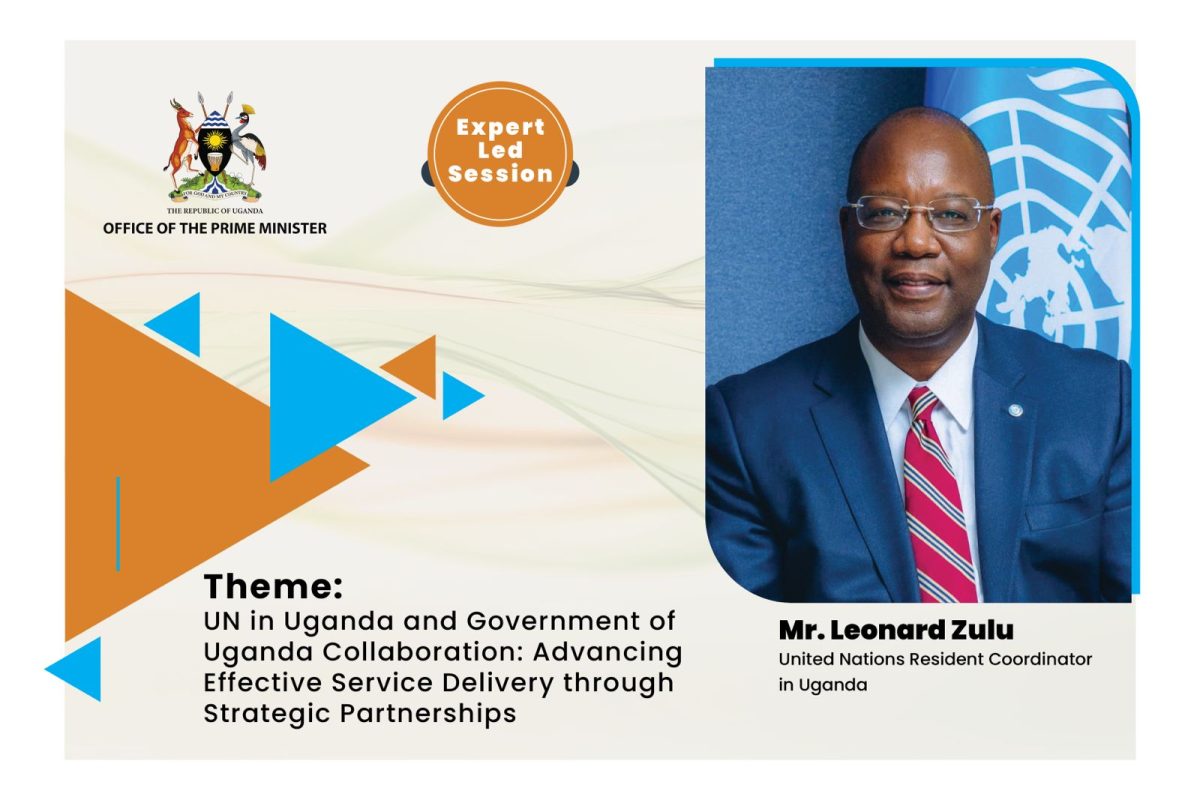
UN-Uganda Collaboration: Advancing effective service delivery through strategic partnerships
Watch full interview here https://youtu.be/d8_LWTrPWxo?si=hvUsXJBuyet4kHeu
In a wide-ranging Expert Led Session under the theme “United Nations in Uganda and Government of Uganda Collaboration; Advancing Effective Service Delivery through Strategic Partnerships”, Mr. Leonard Zulu, the United Nations in Uganda Resident Coordinator, shares candid insights on how the UN system is working hand-in-hand with the Government of Uganda to accelerate the delivery of the Sustainable Development Goals (SDGs) and improve the lives of citizens.
Moderated by Mr. Onesmus Kansiime, the interview highlights the UN’s role in building strong, inclusive, and resilient systems of governance and service delivery, particularly through the UN Sustainable Development Cooperation Framework (UNSDCF) 2021-2025 and the promising of the upcoming UNSDCF 2026-2030.
The United Nations in Uganda, through the leadership of the Resident Coordinator’s Office, has strengthened coordination among 29 UN entities to ensure harmonized support for national priorities and reduce duplication of efforts. This has enhanced service delivery in sectors such as health, education, and refugee response, where partnerships with the Government of Uganda have delivered critical services to over 9.7 million children and provided lifesaving support to 1.5 million refugees. These achievements underscore how collaboration directly improves lives and supports Uganda’s development agenda.
Looking ahead, strategic partnerships remain central to driving development. Through platforms like the Local Development Partners Group and Financing for Development dialogues, new resources are being unlocked to address pressing issues such as climate finance and debt sustainability. The UN continues to align its work with Uganda’s Vision 2040 and the Fourth National Development Plan, embedding SDG implementation into national priorities that promote inclusive governance, economic transformation, and climate resilience. At the same time, there is a clear call to scale up SDG financing, advance governance reforms, and engage both youth and the private sector to ensure accelerated progress and resilience as Uganda advances toward 2030.
The conversation reinforces that effective service delivery is not the responsibility of government alone. It requires bold partnerships, data-driven decisions, and shared accountability among all stakeholders; government, civil society, private sector, academia, development partners, and the UN system.
This initiative forms part of the Expert Led Sessions, supported by the Office of the Prime Minister, the Office of the Deputy Head of Public Service in charge of Performance and Service Delivery, to spotlight knowledge, experiences, and innovations that are driving Uganda’s sustainable development agenda.

